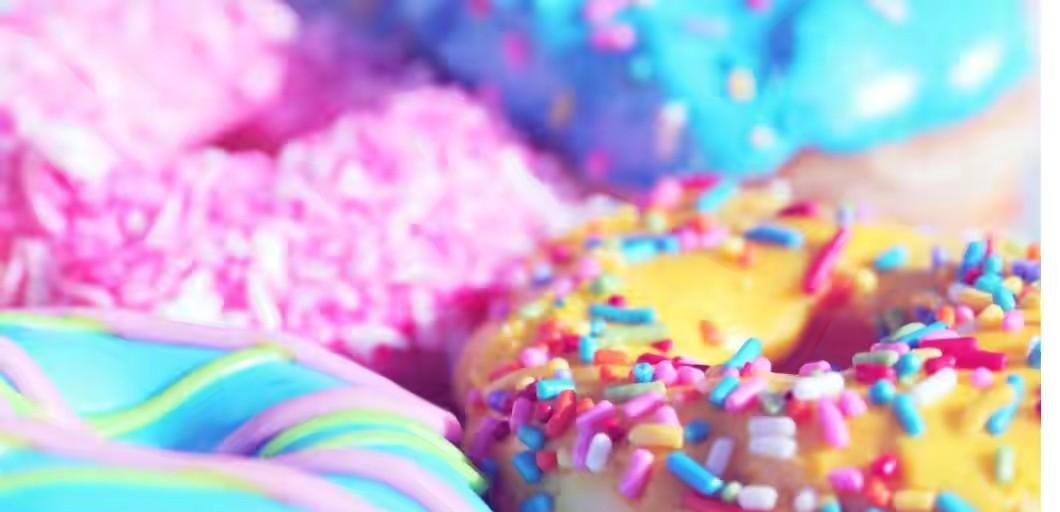Artificial sweeteners, as a substitute for sugar, have the advantage of having almost no energy, but they stimulate the taste receptors in the taste buds on the tongue like sugar, allowing the brain to recognize the sweetness and have no obvious side effects.
Consuming artificial sweeteners helps to reduce sugar intake and control weight, so as a common food sweetener, it is added to almost all packaged foods, drinks, etc.

But in fact, since the discovery of the first artificial sweetener saccharin in 1879, sweeteners have been controversial. For its 130 years of history, it has been synonymous with laboratory accidents, miracle drugs, and dangerous carcinogens.
Above: Saccharin
Just as almost all inventions are coincidental, so are artificial sweeteners.
The first artificial sweetener, saccharin, was found in Remson's lab.
In 1878, a Russian chemist named Konstantin Farberg entered the Institute of Remson, a professor of chemistry at Johns Hopkins University.
One night in June of that year, after a day's work, Farberg sat down for dinner. After picking up a piece of bread and taking a bite, he found that it was the sweetest thing he had ever eaten.
It turned out that earlier that day, Farberg had sprinkled an experimental compound on his hand.
Aware of this, Farberg immediately ran back to the Remson lab and tasted everything on the bench—all the vials, beakers, and trays used for the experiment.
It was a great fate, and finally found the source: a boiling beaker in which o-sulfobenzoic acid reacts with phosphorus chloride and ammonia to form benzylene sulfide.
Although Farberg had previously synthesized the compound by another method, he had never tasted it.
In the years that followed, doctors began using saccharin to treat headaches, nausea, and obesity. Canning companies use it as a preservative, and diabetics use it to sweeten coffee or tea.
As saccharin use increased, consumers, regulators and competitors began to question its alleged harmlessness.
Farberg had already tested the safety of saccharin in late 1882.
After taking 10 grams of this chemical for 24 hours, no adverse reactions occurred.
Reviews in 2017 and 2015 found no evidence that the use of artificial sweeteners increased cancer risk.
But now the study has found that artificial sweeteners don't seem to have no effect at all, and they can turn beneficial gut bacteria into pathogenic bacteria.
As we all know, there are various bacteria in the intestine, and the number reaches 100 to 1500 species of nearly 100 trillion.
Previous experiments have shown that these intestinal flora can help digest food and absorb nutrients, and in animal experiments, germ-free mice need to consume 30% more carbohydrates to be comparable to the weight of normal bacteria mice.
In addition, the intestinal flora can also produce short-chain fatty acids and vitamin K for human absorption through fermentation, while some metal ions, such as calcium, magnesium, iron, etc., can also be reabsorbed through the intestinal flora.
And the intestinal flora can also help regulate the body's immune system and prevent pathogenic bacteria from invading.
A new study from Researchers in the UK, published in the International Journal of Molecular Science on May 15, 2021, shows us for the first time the effects of some widely used artificial sweeteners, such as saccharin, sucralose and aspartame, on E. coli and Enterococcus faecalis.
The study found that at concentrations equivalent to two cans of sugar-free soft drinks, all three artificial sweeteners significantly increased the adhesion of Escherichia coli and Enterococcus faecalis to intestinal caco-2 cells and increased biofilm formation to varying degrees.
Bacteria growing in biofilms are less sensitive to antimicrobial resistance treatment and are more likely to secrete toxins and express virulence factors, which are the molecules that cause disease.
In addition, in addition, except that saccharin has no significant effect on E. coli invasion, all three sweeteners cause pathogenic gut bacteria to invade caco-2 cells found in the intestinal wall.
It is important to know that bacteria such as Enterococcus faecate, if they can pass through the intestinal wall and enter the bloodstream, may lead to life-threatening diseases caused by blood poisoning, which is called sepsis.
These pathogenic microorganisms can also accumulate in the liver, lymph nodes and spleen and cause many other infections.
"These pathogenic changes can cause gut bacteria to invade ourselves and cause damage to our gut, which can be linked to infection, sepsis and multi-organ failure," the authors said. ”
But there is no need to panic, after all, the experimental concentration is two cans of sugar-free soft drinks.
Meanwhile in the United States, the FDA also provides guidance to manufacturers and consumers on daily limits for consuming high-intensity sweeteners, known as the acceptable daily intake (ADI), defined as milligrams per kilogram of body weight per day (mg/kg bw/d).
Among them acesulfame potassium, adi 15; advantame, adi 32.8; aspartame, adi 50; saccharin, adi 15; sucralose, adi 5.
Above: Three artificial sweeteners, aspartame, saccharin, and sucralose.
Moreover, at present, China's main sweet ingredient products are usually divided into sucrose, fructose syrup, artificial sweeteners and natural sweeteners.
Among them, sweeteners account for only 10% of the overall sweet ingredient market, while artificial sweeteners account for 9%. Avoid overeating, it should not be a big problem, but it is best to maintain a healthy diet.